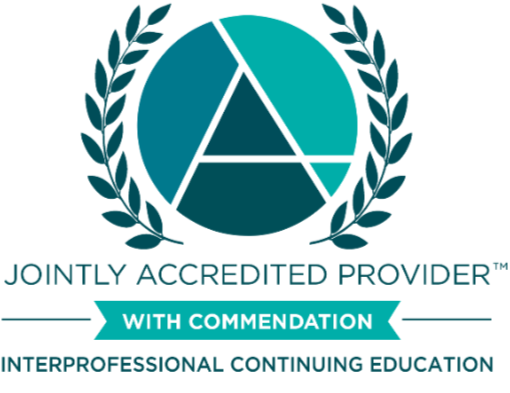Create an account or log in to participate in this activity
By reviewing the course content and successfully completing the post-test and evaluation, physicians are entitled to receive 1.5 AMA PRA Category 1 Credit™, nurses are entitled to receive 1.5 CNE contact hours, and emergency care providers are entitled to receive 1.5 hour(s) of ACEP Category I credit.

In support of improving patient care, Boston University Chobanian & Avedisian School of Medicine is jointly accredited by the Accreditation Council for Continuing Medical Education (ACCME), the Accreditation Council for Pharmacy Education (ACPE), and the American Nurses Credentialing Center (ANCC), to provide continuing education for the healthcare team.
Boston University Chobanian & Avedisian School of Medicine designates this enduring material for a maximum of 1.5 AMA PRA Category 1 Credit(s)™. Physicians should claim only the credit commensurate with the extent of their participation in the activity.
Nursing Contact Hours: 1.5, of which 1.5 are eligible for pharmacology credit
Approved by the American College of Emergency Physicians for 1.5 hours of ACEP Category I credit.
This activity is designed to address the needs of emergency care providers, including physicians and nurses, in the emergency department and urgent care settings.
At the conclusion of this activity, participants will be better able to:
Date of Original Release: July 3, 2019
Most Recent Review Daye: July 1, 2022
Date of Expiration: June 30, 2026
Estimated time to complete: 90 minutes
Emergency providers are faced with a unique dilemma of addressing acute pain and acute exacerbations of chronic pain without the reliance on an established patient relationship or follow-up to guide pain management and adequately monitor for aberrant drug-related behavior. Emergency providers are in the top five prescribers of opioid medications and also primarily evaluate patients that suffer overdoses from prescription medications. Emergency providers would uniquely benefit from education on safe prescribing of opioid medications in the emergency department and guidance on appropriate interventions for prescription overdose patients.
The didactic content of this activity is supported by video vignettes of provider/patient* communication techniques that provide examples of effective interactions with patients in several scenarios including management of an opioid naïve patient and an opioid-seeking patient.
*Please note that all patients are portrayed by actors.
Boston University Chobanian & Avedisian School of Medicine asks all individuals involved in the development and presentation of Accredited Continuing Education activities to disclose all financial relationships with ineligible companies. This information is disclosed to all activity participants prior to the start of the educational activity. Boston University Chobanian & Avedisian School of Medicine has procedures to mitigate all relevant financial relationships with ineligible companies. In addition, faculty members are asked to disclose when any unapproved use of pharmaceuticals and devices is being discussed.
In accordance with the Standards for Integrity and Independence in Accredited Continuing Education, all relevant financial relationships that faculty, planners, authors, and anyone who may be in control of content have with ineligible companies have been mitigated.
Daniel P. Alford, MD, MPH, FACP (Co-Course Director)
Professor of Medicine
Boston University Chobanian & Avedisian School of Medicine
Boston Medical Center
Leah Broyles, RN, BSN (CNE Course Advisor)
Staff Nurse
Carolinas Medical Center, Atrium Health
Charlotte, North Carolina
Christopher Griggs, MD, MPH (Co-Course Director)
Associate Professor of Emergency Medicine
Carolinas Medical Center, Atrium Health
Charlotte, North Carolina
Christine Murphy, MD
Associate Professor of Emergency Medicine
Director, Medical Toxicology Fellowship
Divisions of Medical Toxicology and Pediatric Emergency Medicine
Carolinas Medical Center, Atrium Health
Charlotte, North Carolina
Sergey M. Motov, MD, FAAEM (Content Developer)
Assistant Professor Clinical Emergency Medicine
SUNY Downstate Medical Center
Research Director, Department of Emergency Medicine
Maimonides Medical Center
Brooklyn, NY
Faculty members have no relevant financial relationships to disclose. The faculty members do plan on discussing the unlabeled/investigational use of sub-dissociative ketamine for pain.
Daniel Alford, MD, MPH, Associate Dean of Boston University Chobanian & Avedisian School of Medicine's Continuing Medical Education Office, has no relevant financial relationships to disclose.
Michael Burk, Senior Program Manager, Boston University Chobanian & Avedisian School of Medicine's Continuing Medical Education Office, has no relevant financial relationships to disclose.
Ilana Hardesty, Senior Program Operations Manager, Boston University Chobanian & Avedisian School of Medicine's Continuing Medical Education Office, has no relevant financial relationships to disclose.
Sergey Motov, MD, Research Director, Department of Emergency Medicine at Maimonides Medical Center in Brooklyn, New York, has no relevant financial relationships to disclose.
Carmela Townsend, DNP, MS/MBA, RN, Lead Nurse Planner, Boston University Chobanian & Avedisian School of Medicine's Continuing Medical Education Office, has no relevant financial relationships to disclose.
This activity is supported by an independent educational grant from the AmerisourceBergen Foundation.
THIS CONTINUING MEDICAL EDUCATION PROGRAM IS INTENDED SOLELY FOR EDUCATIONAL PURPOSES FOR QUALIFIED HEALTH CARE PROFESSIONALS. IN NO EVENT SHALL BOSTON UNIVERSITY BE LIABLE FOR ANY DECISION MADE OR ACTION TAKEN IN RELIANCE ON THE INFORMATION CONTAINED IN THE PROGRAM. IN NO EVENT SHOULD THE INFORMATION CONTAINED IN THE PROGRAM BE USED AS A SUBSTITUTE FOR PROFESSIONAL CARE. NO PHYSICIAN-PATIENT RELATIONSHIP IS BEING ESTABLISHED. IN NO EVENT SHOULD INFORMATION IN THE MATERIALS REGARDING LAWS, REGULATIONS, OR LEGAL LIABILITY BE CONSIDERED LEGAL ADVICE OR USED AS A SUBSTITUTE FOR CONSULTING WITH AN ATTORNEY.
For questions about CME, please contact cme@bu.edu.
SCOPE of Pain
© 2026 Trustees of Boston University. Site by Root802.